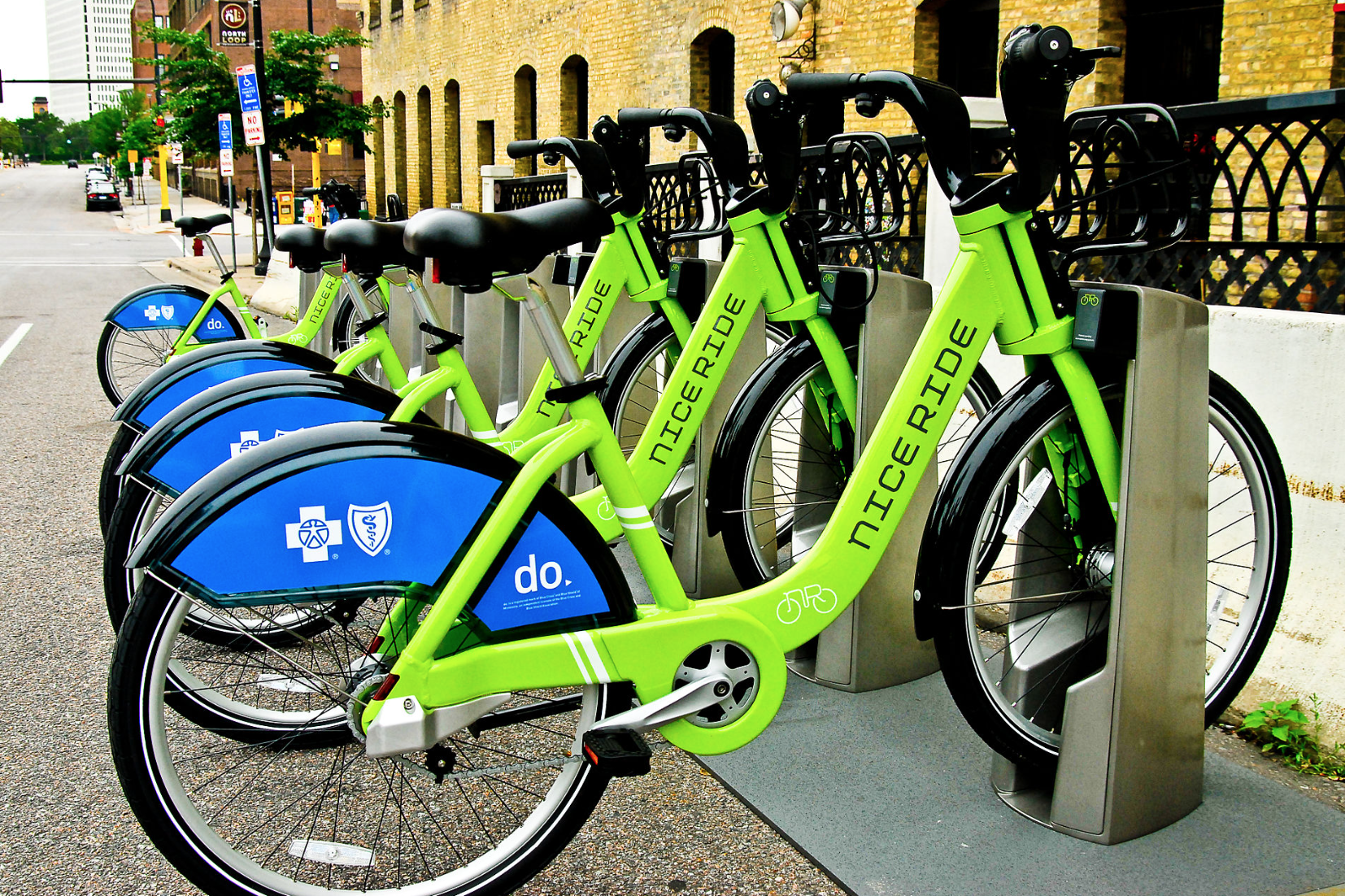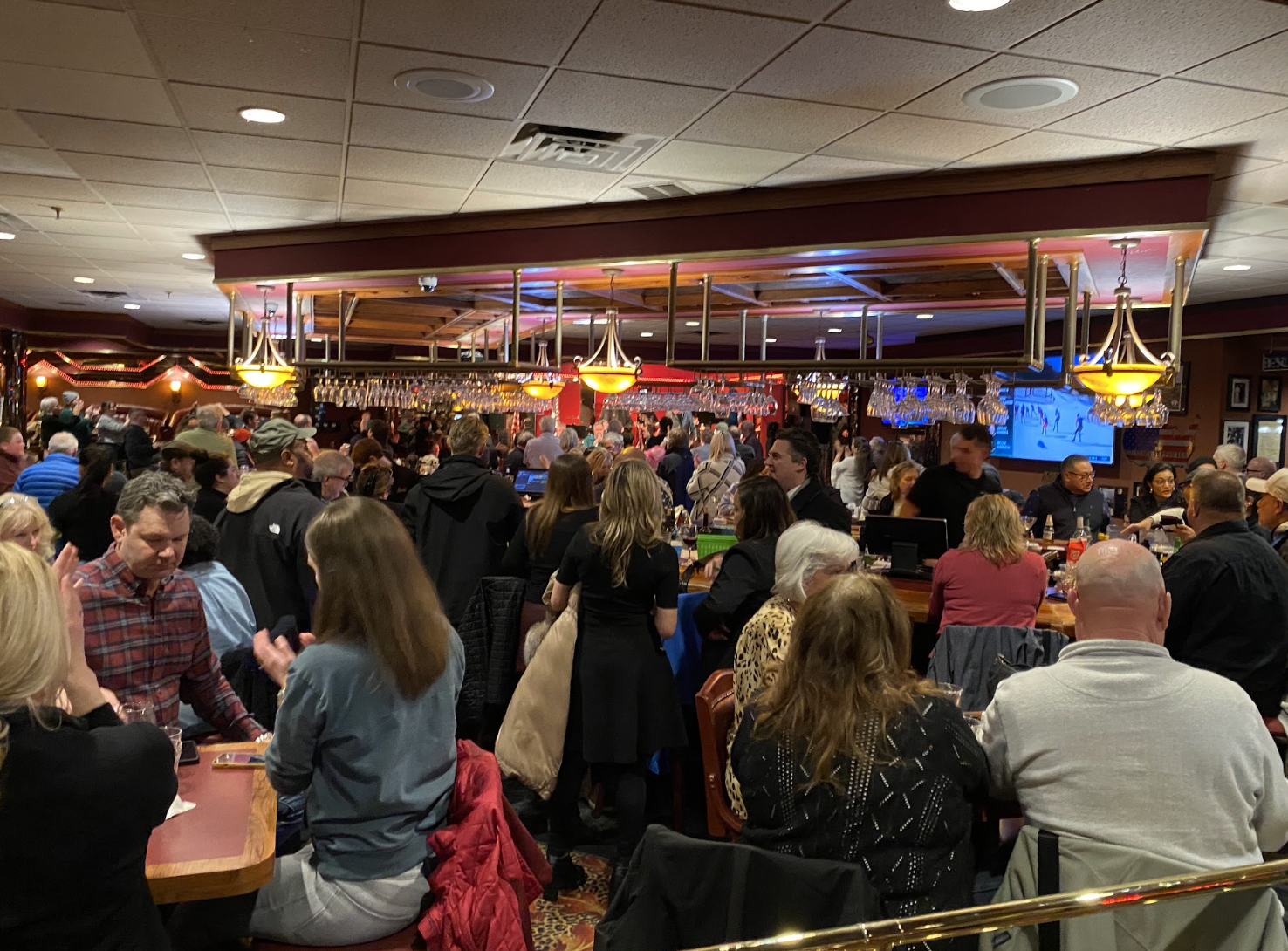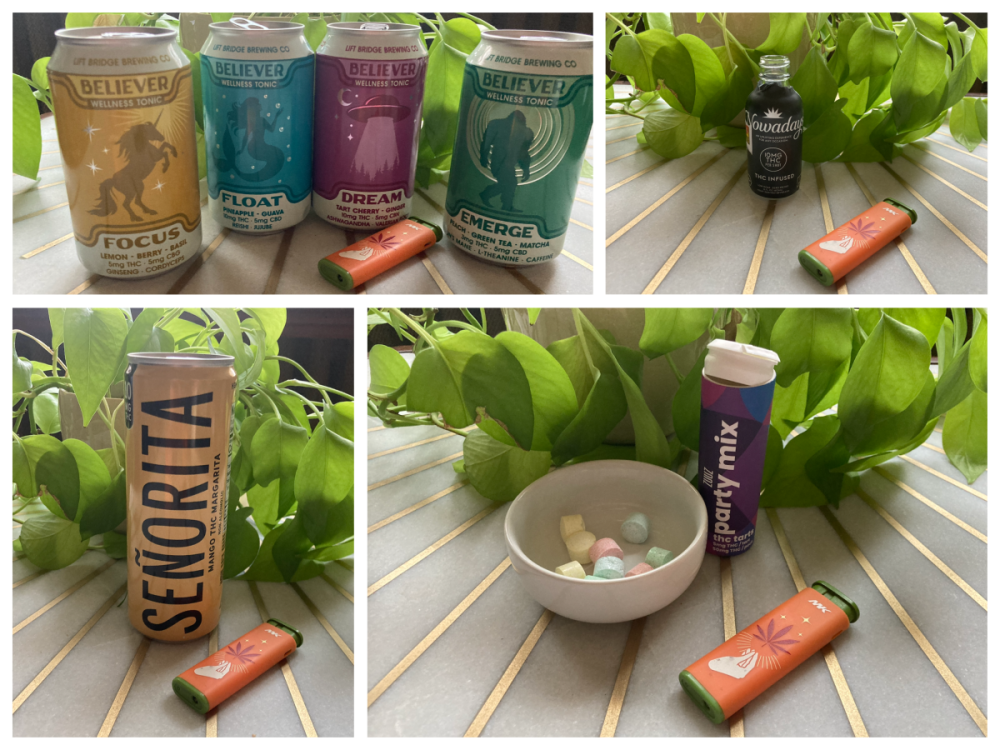When the Nice Ride program launched in Minneapolis in 2010, executive director Bill Dossett says there was "just no idea" if Americans would go for a bikeshare system. The concept of "shared micromobility" barely existed—even in European cities, the idea was just getting off the ground.
"At the time, people thought we were crazy," Dossett chuckles. "They thought all the bikes were going to be destroyed within a couple years. And so it feels really great that here we are, after 13 seasons... we feel terrific that today, young people just grow up expecting this—it's a part of the landscape."
Nice Ride smashed ridership records in 2021, when more than 70,000 riders completed 533,000 trips on the program's green bikes, scooters, and e-bikes. The 2022 season included a "banner September" in which ridership jumped 54%, largely thanks to equity programs like Nice Ride for All and new enrollment from University of Minnesota students.
But in November, Nice Ride's primary sponsor, Blue Cross Blue Shield, announced it was pulling its financial support from the nonprofit program for the upcoming season. (Hey, the rapacious health insurance giant only made $557.6 million in 2021.) Transportation advocacy org Move Minnesota sounded the alarm that without a new sponsor or public funding, Nice Ride was facing a $2 million budget shortfall, and its future was at risk. And in February, Nice Ride alerted its public partners about "the ending of our bike share pilot project and... the planned disposition of equipment."
A spokesperson for Lyft, which secured the city contract to manage and operate Nice Ride in 2018, sent Racket the following statement:
"We have made the tough decision to suspend our operations of the Nice Ride system at the completion of our one-year license after losing the system's presenting sponsor. Since losing the presenting sponsor, we have worked tirelessly to find a new sponsor but have not been successful. We will continue to work with our local partners to look for opportunities to provide service again in the future.”
Lyft
The suspension of Nice Ride includes the bikes, e-bikes, and scooters. Lyft says it will begin removing Nice Ride stations once weather allows for it.
Though the rideshare company and its partners undertook a "rigorous search" for a new sponsor, they've been unable to lock one in, nor have they been able to secure temporary public funding to float the program and cover operating losses as the search continues.
Lyft representatives note that the Nice Ride model initially relied on a combination of sponsorship and public support under a long term program agreement with an operator. But conditions have changed in recent years: The city of Minneapolis has moved to a one-year license agreement model, public and sponsorship funds have dried up, and the number of operators has grown to make it more difficult to secure a sponsor.
The company says it's not currently in a position to ramp up operations of the program this spring without the support of partners, "a critical component in all of our markets with a healthy operating model."
Dossett adds that the existing equipment—the heavy bikes and stations—are probably not the right fit for Minneapolis, where, unlike in bigger cities like New York, the usage (while climbing) isn't quite high enough to justify the cost associated with maintaining the equipment. What's more, when the pilot launched in June of 2010, they predicted that the bikes would last for five years, and the stations for 10.
"I do not expect the heavy stations to come back. And this particular group of bikes—they've been around for a long, long time," he says, adding that they're exploring options including using the bikes for parts in other systems.
Dosset says you can still expect other shareable scooters, and possibly bikes, to hit the streets this year, operating on the annual permit basis the city has implemented. He notes they're not the biggest fan of this system—they'd prefer the city partner with one or two vendors on a more longterm basis.
(Update, March 1 at 5 p.m.: The city of Minneapolis responded to Racket's request for comment with the following statement: "The City is disappointed that Lyft could not find a new private sponsor to support their operation of the Nice Ride system. Regardless of the outcome, the City has other licensees in the Shared Bike and Scooter Program interested in providing shared bikes, ensuring that the city will have bikes in the program this upcoming season.")
While Lyft says it's continuing its search for new financial partners, Dossett thinks it's unlikely they'll land one—hence their notice to public partners about the end of the program. He says he and the Nice Ride board feel lucky to have had support in this "huge experiment" from groups as big as the Federal Highway Administration, Blue Cross, and the National Parks Service.
"You know, it is emotional. I have lots of nonprofit board members who have been on the board since it began in the winter of 2009," Dossett says. "It's been a long time that we've been working on this stuff."
"It's been hugely fun and very surprising—it's gone in directions we never expected," he concludes. "We've gotten huge support from the community—we've had small businesses that supported us for years, and people that really supported the brand and saw it as part of creating a vital downtown. And that has just been really fun."






